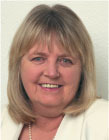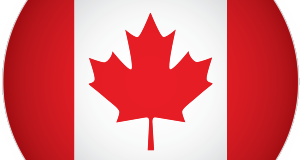
A South African COVID Perspective And The Case Manager’s Challenge
BY , RN, CCMSA
A country no bigger than Texas, South Africa is filled with beauty and magnificence, from wildlife to mountain peaks, awesome beaches and the best winelands. It has a population of 60 million people of all races and diverse cultures.
The onset of COVID-19 as a global pandemic has introduced challenges for all case managers as never before. Like the rest of the world, South Africa was totally locked down on 27 March 2020 for an initial period of 8 weeks. All elective surgery was put on hold, and hospitals were focussed on converting normal wards to ICU-type settings to deal with the influx of COVID patients.
One of the first things to be implemented was the total ban on the sale and serving of alcohol to avoid unnecessary trauma admissions due to intoxication. Cigarettes were also banned, as in many rural sectors the sharing of cigarettes is a reality and would increase the spread of the virus. We were not allowed to leave our homes at all, unless we were in essential services, or to shop for food or required medical assistance. We had an initial curfew imposed from 9 p.m. to 6 a.m., and the traffic on the roads was immediately reduced to a small fraction of its usual volume. Motor vehicle accidents, stabbings and other violence caused by alcohol were almost obliterated for those 8 weeks.
This gave the acute hospitals the beds and medical facilities the ability to cope with the hordes of extremely ill COVID patients. As the COVID-positive patients started decreasing and control was achieved, the lockdown measures were slowly lifted, but it took a further 4 months to lift the ban on alcohol. This freedom was short-lived; with the second wave fast approaching during the festive season, the alcohol ban was re-implemented. For the first time in history, the main trauma facilities over Christmas and New Year were empty.
The case managers’ focus changed from managing poly trauma cases and similar catastrophic events to managing patients at home, because no beds were available in the hospitals to the patients. Oxygen became the new desired commodity, and the ongoing “fight” to secure an oxygen concentrator for patients to avoid hospitalization or to get them home sooner became a frightening reality. Discharge planning came to the forefront like never before, anticipating the discharge so the home oxygen could be booked, arranging carers to assist and planning the home sanitisation in advance of the discharge, etc.
So while acute facilities were discharging home, there was an increase in the need to manage the patient holistically with a definite increase in the mental health and wellness facilities admissions due to increased suicide attempts, depression and stresses exacerbated by the lockdown, ban on cigarettes and alcohol and economic factors. The case managers focussing on mental wellness had a new reality to deal with.
Our well-documented methods of planning, facilitation and co-ordination in a controlled way went out of the window; creativity became the new norm, and the case managers rose to the challenge.
Hospital-based case managers and funder case managers started working together like a well-oiled machine. Patients and families became the central focal point instead of revenue and cost saving.
Beds needed to be freed up, and telephonic communication with families updating them on their loved one’s condition became a regular occurrence as no visitation was allowed. Many patients died, scared and alone, surrounded by gowned and masked PPE strangers. Celebrations galore took place when patients recovered and finally went home. We all started to appreciate recovery and living again, being truly thankful for the small things in life.
In the smaller medical facilities, the case managers were redeployed to the wards to assist in the clinical care; this was another reminder of “once a nurse always a nurse.” Funder-based case managers volunteered to work weekends and nights and together assisted in the fight against this dreadful virus.
South Africa became the focal point of the pandemic in December with a new aggressive variant that caused many countries to shut all borders to South African travellers. South Africa very quickly became the country to avoid, which caused further economic challenges to add to the misery.
We are now at the point where the first vaccines have arrived. Great anticipation was soon crushed with disappointment as the first batch was found to be ineffective against the aggressive SA variant and was returned to the supplier. Fortunately, the second batch, from a different supplier, proved effective and is in the process of being rolled out. First to be vaccinated are the healthcare workers and then teachers, followed by the rest of the population. We anticipate it will take a further 9 months to vaccinate 75% of the community, when hopefully we will achieve population immunity.
We remain grateful for our health and that as case managers we can continue to make a difference in the lives of our patients and their families even though the landscape is quite different.





